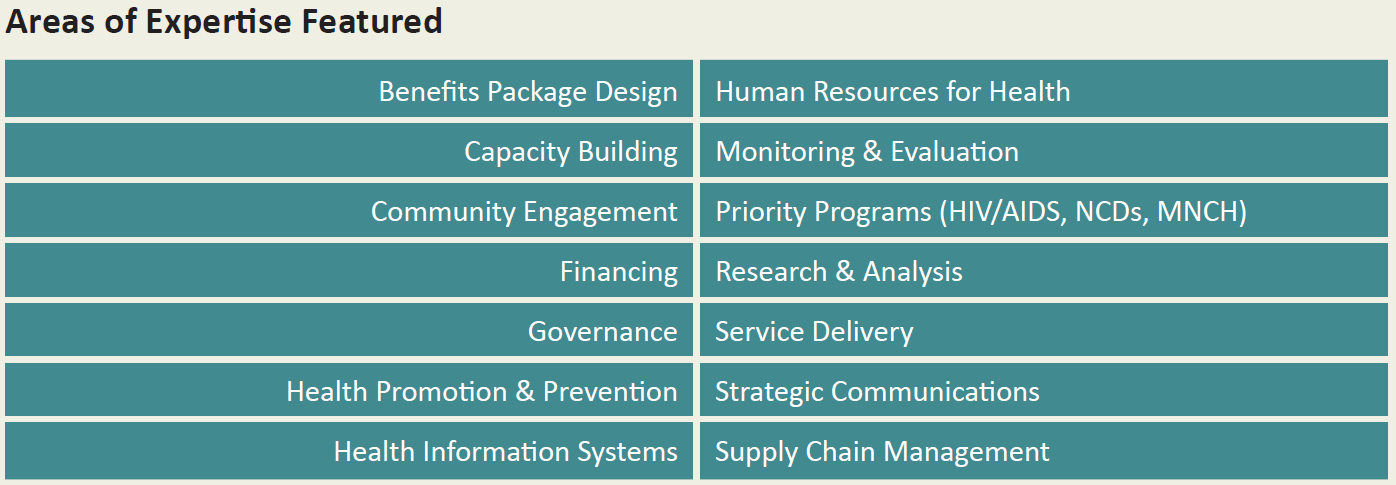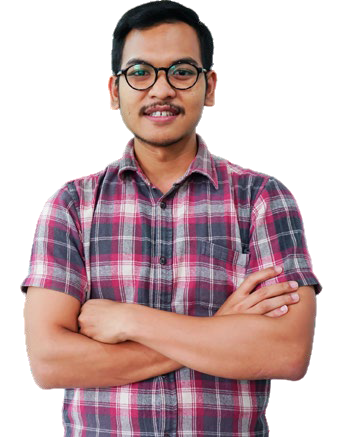A global networking platform of health systems strengthening experts
Historically, technical assistance to low- and middleincome
countries has been provided by institutions
and experts who are not from the regions in which
they are working. However, country practitioners
and policymakers are, more than ever, advocating for
greater access to experts who understand their country
contexts; who have practical, relatable experiences
with similar challenges; and who can work with them
to develop home-grown solutions while simultaneously
strengthening individual and institutional capacities. But
finding this kind of expertise can be challenging.
That’s why we have developed the Experts Database,
a publicly accessible, searchable online networking
platform of health systems strengthening (HSS) experts.
Why build it?
1. To elevate the profiles of experts from the countries and regions that are requesting support for technical assistance
2. To increase the visibility of emerging experts
3. To promote a more transparent approach to matching country demands with expertise
4. To connect experts with one another and build a supportive community
“The Experts Database fills a need by elevating the profile of experts with relevant contextual knowledge.”
Cheickna Toure, Health Financing and Information Systems Expert (Mali)


1. Individuals and institutions with expertise in health systems strengthening, like Alice…
Alice* is a health systems strengthening professional from Nairobi, who is looking for new work opportunities. Her experience spans 10 years, and includes time at the Ministry of Health and research institutions in Kenya on various initiatives to improve supply chain management.
Alice is looking for new work opportunities. She is active on LinkedIn and the Global Digital Health Network, but she has mostly relied on her own network for leads. However, she often hears about the same opportunities and is eager for her expertise to be known beyond her immediate circle, which is primarily based in Kenya. In addition to leveraging her supply chain management expertise, she is interested in identifying opportunities that will utilize some of the skills she has developed through her experiences of supporting policy processes in her country, such as facilitation.

2. Individuals and institutions that are seeking health systems strengthening support, like Fajar…
Fajar* works for an international NGO that is implementing a donor-funded health financing project in Indonesia. The Ministry of Health is considering changes to their basic health plan and has asked Fajar to identify experts to work with them and help them think through whether this will be the right solution for the country. The government would like to identify at least one costing expert who will be able to work with the country over the next year, preferably someone who speaks Bahasa Indonesian and understands the local context. However, the government also plans to bring in experts from other countries that have successfully implemented similar changes to share their experiences later in the process.
As Fajar activates his network for referrals, he receives several resumes. But he is disappointed because he has seen several of the resumes before and there are very few from local or regional experts. The local experts that have been referred are quite senior, and often have limited availability, given that their expertise is in high demand. Fajar is a busy professional and doesn’t have a lot of time to personally search through professional network sites like LinkedIn and wishes for an easier way to find the experts he’s looking for.
*Alice and Fajar are both fictional characters, developed to illustrate who can benefit from the Experts Database.
